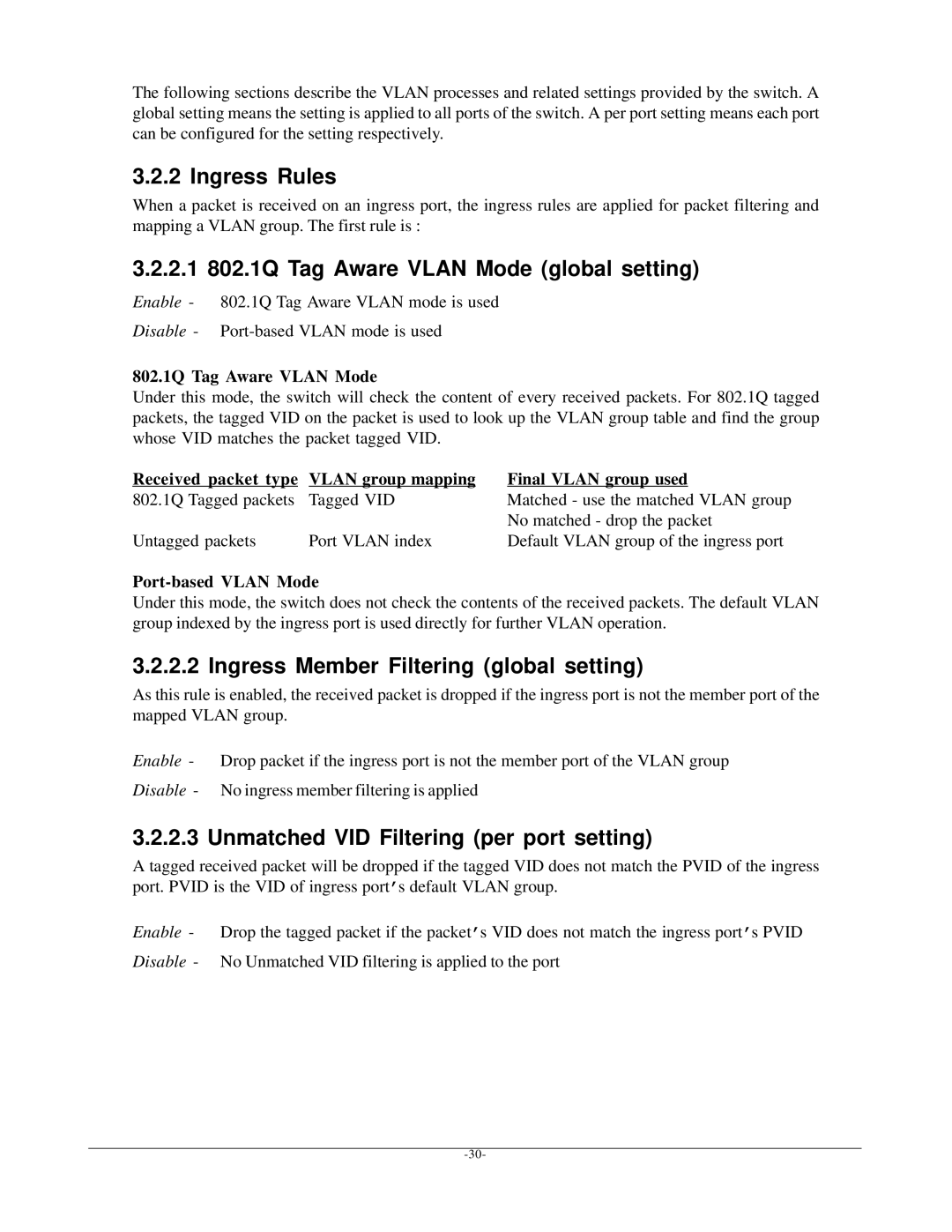The following sections describe the VLAN processes and related settings provided by the switch. A global setting means the setting is applied to all ports of the switch. A per port setting means each port can be configured for the setting respectively.
3.2.2 Ingress Rules
When a packet is received on an ingress port, the ingress rules are applied for packet filtering and mapping a VLAN group. The first rule is :
3.2.2.1 802.1Q Tag Aware VLAN Mode (global setting)
Enable - 802.1Q Tag Aware VLAN mode is used
Disable -
802.1Q Tag Aware VLAN Mode
Under this mode, the switch will check the content of every received packets. For 802.1Q tagged packets, the tagged VID on the packet is used to look up the VLAN group table and find the group whose VID matches the packet tagged VID.
Received packet type | VLAN group mapping | Final VLAN group used |
802.1Q Tagged packets | Tagged VID | Matched - use the matched VLAN group |
|
| No matched - drop the packet |
Untagged packets | Port VLAN index | Default VLAN group of the ingress port |
Port-based VLAN Mode
Under this mode, the switch does not check the contents of the received packets. The default VLAN group indexed by the ingress port is used directly for further VLAN operation.
3.2.2.2 Ingress Member Filtering (global setting)
As this rule is enabled, the received packet is dropped if the ingress port is not the member port of the mapped VLAN group.
Enable - Drop packet if the ingress port is not the member port of the VLAN group
Disable - No ingress member filtering is applied
3.2.2.3 Unmatched VID Filtering (per port setting)
A tagged received packet will be dropped if the tagged VID does not match the PVID of the ingress port. PVID is the VID of ingress port’s default VLAN group.
Enable - Drop the tagged packet if the packet’s VID does not match the ingress port’s PVID
Disable - No Unmatched VID filtering is applied to the port
